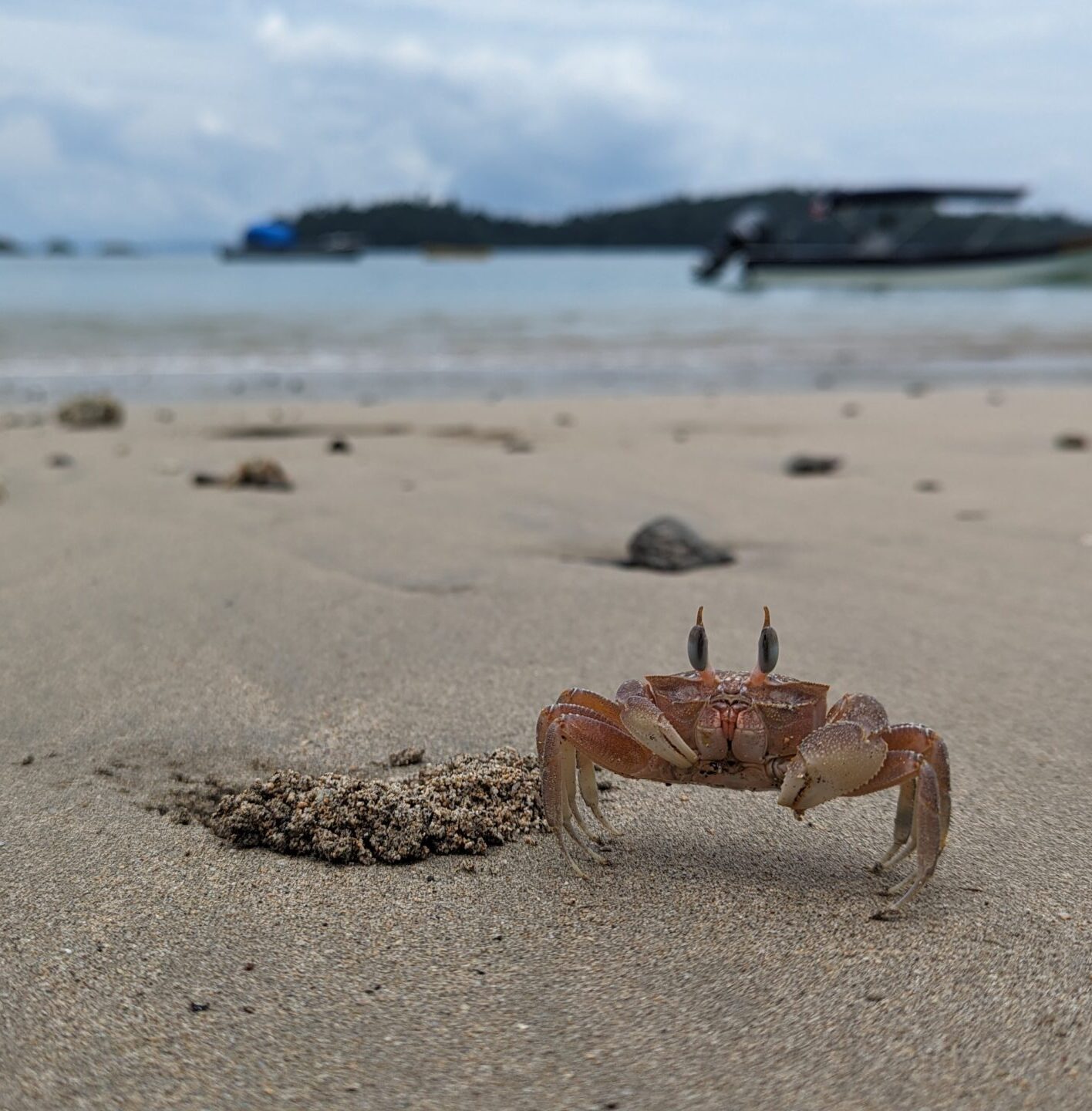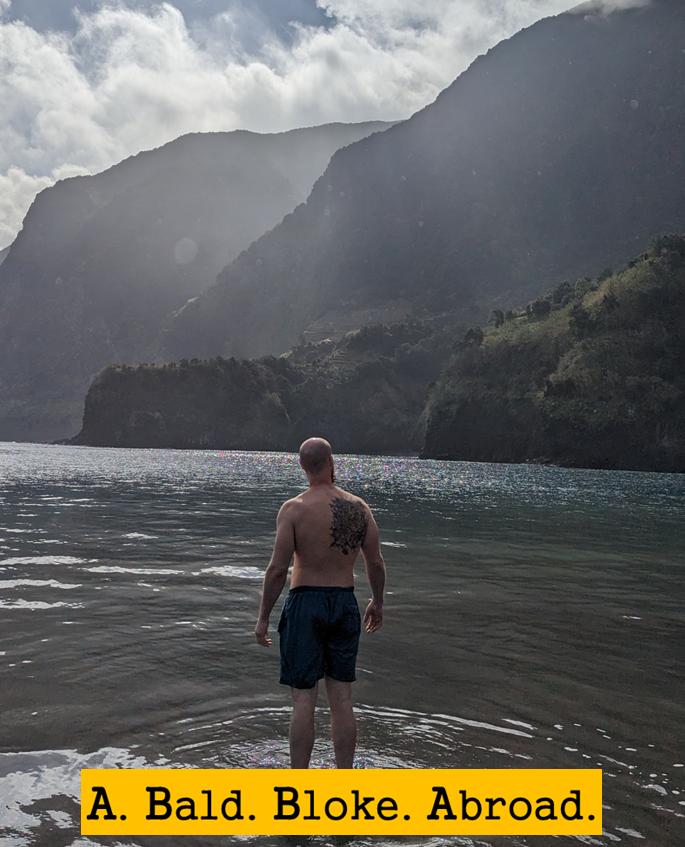I’m getting on a bit now.
By the time we embark on our sabbatical, I will have survived thirty-four trips around the sun. Aches, pains, injuries, and general ailments have become part of my identity. I’d feel out of sorts if I didn’t wake up every morning with backache or get a stiff hip when the temperature drops. I can almost sense when the weather is about to change just by listening to the noises coming from my hip when I get up off the loo. I fully expect to need a full Pilates session before using one of the dreaded squatter toilets in Asia; otherwise, I might never get down low enough to ensure good accuracy! Or worse yet, I could get stuck in the squat position with my trousers around my ankles. It’s times like these that having a wife is quite comforting – she’s married to me, so she has to help me if I get stuck on the toilet.
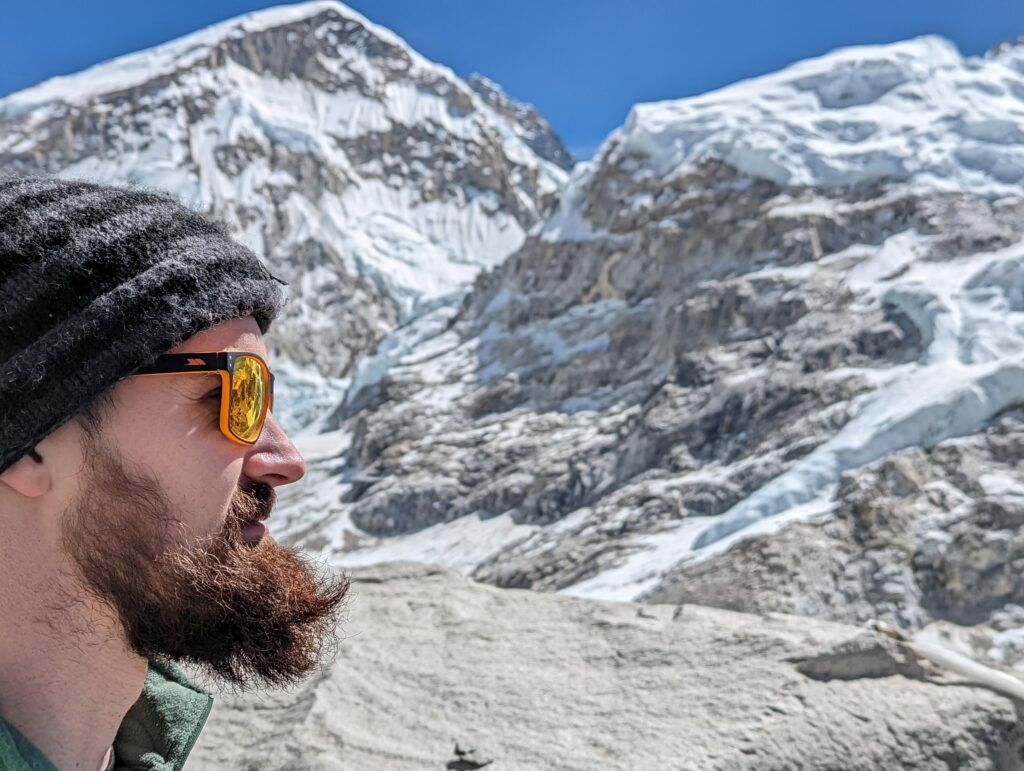
Most of us have some level of anxiety about how fit we are for travel, whether it’s due to ailments, physical fitness, or other health issues. I feel quite well-versed in all of these topics, which I am not sure is a good thing, but I wish I had been given some advice about this in the past! So, I will try to address each concern from a fitness perspective and explain how impactful they really are and how to mitigate them.
Physical Fitness: What If I Haven’t Left the Sofa in Months?
How Fit Do You Need to Be?
How hard is it to go on holiday? I mean, you just gracefully drift from sun-lounger to bar, with the occasional intermission to slather on some factor-50 and consume sustenance, right? Well, you could do that… Many people do, and it has its merits; but it is not the kind of travel I yearn for. Where is the snorkelling, the hikes, the exploration, and the hoicking of insanely heavy rucksacks? Those are the kinds of activities I think are relevant to this topic.
The Influence of Influencers
Well, those darn influencer types we see online all tend to look pretty fit and healthy. Even quite athletic in some cases! It’s commendable and great for them, truly, but it’s not a comparison we should be making. It’s easy to forget that these people are usually living long-term in their tropical paradise or, at the least, traveling very slowly. Which gives them plenty of opportunity to exercise, be picky with what they eat, and crucially, re-record themselves many times to ensure they capture their best angle. We normies will be traveling a little more intensely, not staying in one place for more than a week, so chiselled abs and super quick 5km run times are not something to worry about. You’ll have to trust me on that, although I know it sounds suspicious coming from an injured bloke with more hair on his back than on his head.
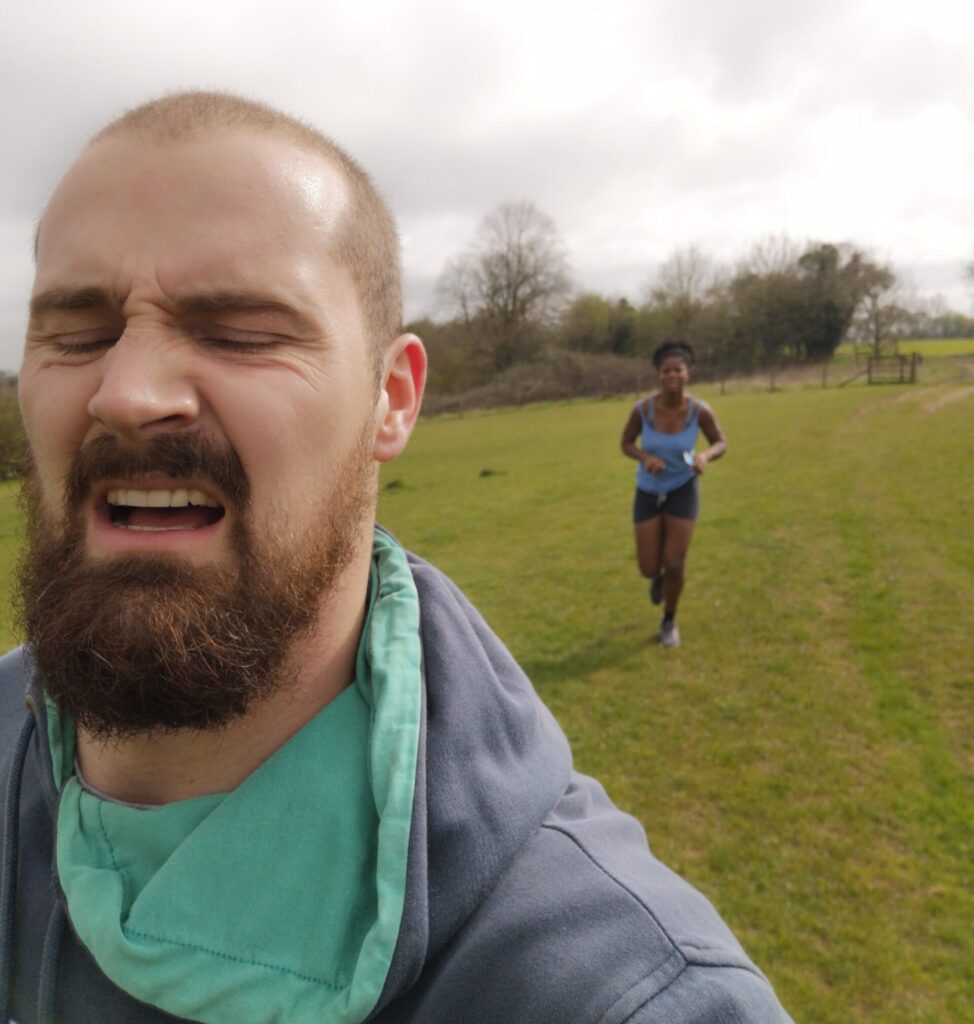
The Basics
So, you don’t need to be a marble sculpture, but you do need a certain level of physical ability. I’m going to exclude specific excursions like mountain trekking or any pre-organised expeditions; for those, you will almost definitely need to have trained and be fit enough! Aside from those sorts of activities, strenuous undertakings will be limited to walking around cities, walking around cities with a heavy backpack on, walking around pretty places, walking along beaches, and some leisurely swimming. But, it’s mainly walking.
Being on your feet for multiple hours a day is to be expected, and some of it will include carrying a big ol’ rucksack. This can be taxing, particularly if you are doing it day after day; your feet and knees can take a bit of a beating. However, it’s not particularly demanding from a cardiovascular point of view, i.e., you don’t need to be a marathon runner! So, if you can’t handle a few days of walking, then perhaps the sun-lounger would be a better choice for you.
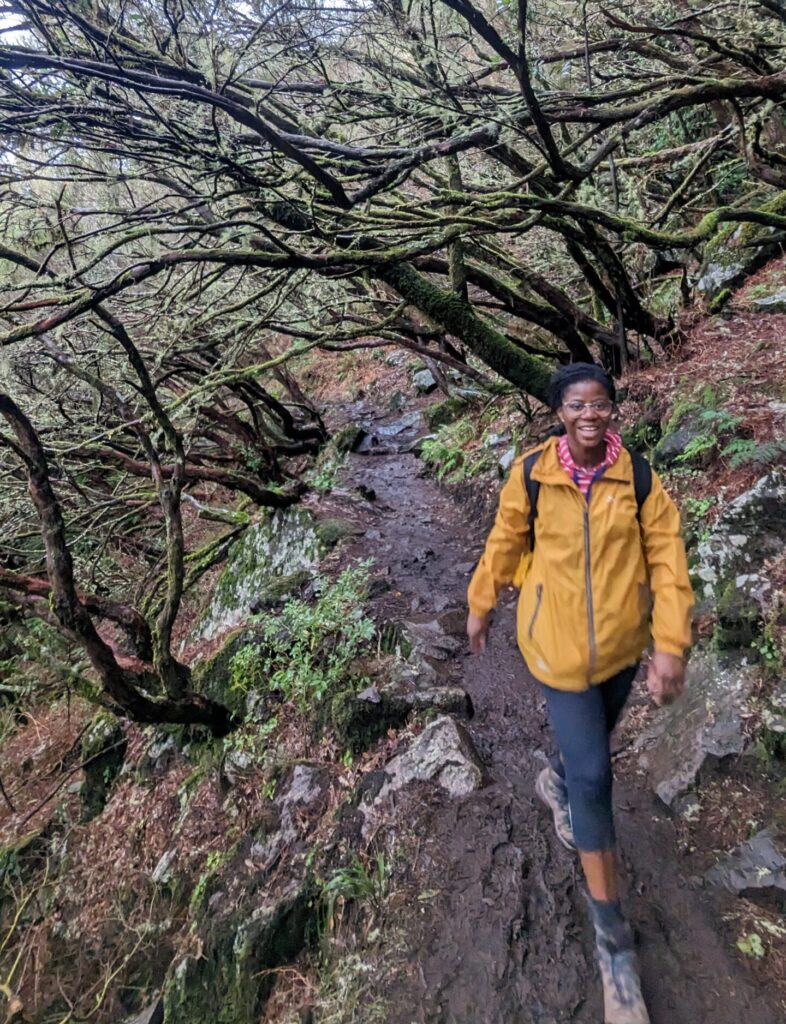
Getting wet
From time to time, you will probably fancy a dip in the water or, even better, a snorkelling trip. Of course, to do this you need to be able to swim, but you don’t need to be capable of hundreds of lengths of front crawl. Firstly, if you want, you could wear a life jacket, which removes any strenuous requirements (I have almost fallen asleep while adrift in a life jacket in the past!). Really, you just need to be able to tread water for a good while, which can be tiring, but it has as much to do with confidence and comfort in the water as it does with physical ability. If you can float around a pool indefinitely, occasionally engaging in a bit of breaststroke, then you are ‘fit’ enough for basic snorkelling!
So, for those not planning on more extreme excursions, you don’t need to be a triathlete or a fitness model. However, you do need a level of endurance to stay on your feet for extended periods and be somewhat capable in the water.
Chronic Pain or Injury: What About If I Am Broken?
The reality
For me, this topic is a bit more cut and dried, and I’m speaking from experience – painful, unenjoyable experience. If you have chronic pain or injuries, backpacking will inevitably find a way to aggravate them and drive you towards a stiff drink at every opportunity! Although, that might just be me, but I tend to drink at every opportunity anyway.
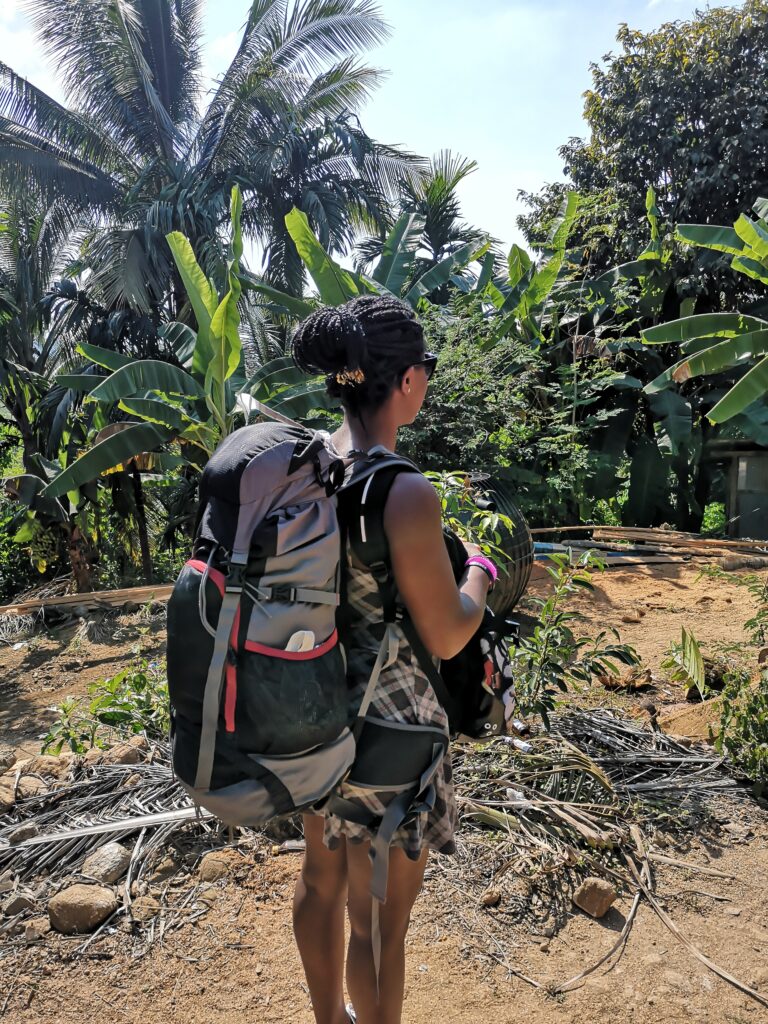
Let me give you a few (hopefully) relatable examples:
- You savour the last sip of a delightful cup of locally grown coffee, set the cup down, and slap a generous tip on the table. Revitalised, you’re ready to continue your trek across town to the funky-looking hostel you’ve booked, so you grab your rucksack and swing it onto your back. TWANNGG – your bicep tendonitis flares up, reminding you that you’re an old, creaky bald bloke. The rest of the day is spent furiously massaging your arm and popping ibuprofen pills.
- You’ve spent the last eleven hours staring down the aisle of the bus. It’s uncomfortable, you haven’t slept a wink, but you know that the secluded beach at the end of this journey is worth it. The driver makes an incomprehensible announcement that could be the name of your stop, so you try to catch his eye to confirm. When you can’t get his attention, you leap to your feet, determined not to miss your chance. TWAANNNGG – your lower back protests, reminding you that you’re a brittle twig of a man trying too hard to feel young.
- You’ve been walking around a beautiful old town since mid-morning. It’s late afternoon now, but you want to see a certain landmark before calling it a day. It’s a half an hour walk in reality, but if you really hurry, you could shave off ten minutes and even have time for a beer when you get there! TWANNNNNNNGGGG – your plantar fasciitis bursts onto the scene, reminding you that you’re good for nothing more than Netflix and drinking tinnies on the sofa.
Managing your issues
Can you relate? Maybe…? In any case, my point is that if you’re planning to indulge in some ‘proper’ travel, you need to stay on top of your ailments. You can try to protect your injuries as best as possible, for example you don’t have to speed walk or sling your rucksack around carelessly. But honestly, so much of backpacking is beyond your control that unmanaged chronic pain will inevitably make itself known.
I’ve spent a lot of time rehabbing myself in preparation for our big trip. I even listened to Mary-Ann for once and tried some physiotherapy to whip my back into shape, and as hard as it is for me to admit, she was right. I recommend doing the same and even devising a simple routine of exercises and stretches you can do on the road to keep things in check. Dare I say it, you might even try some yoga. Just try not to film yourself doing it, as hard as that seems to be these days.
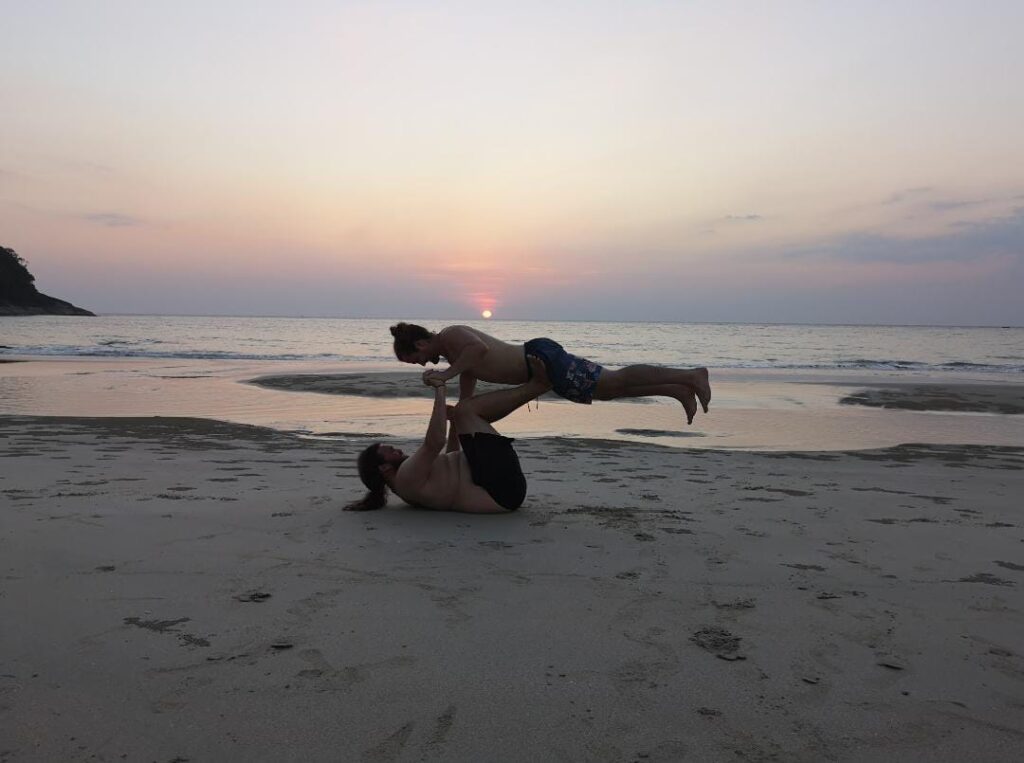
My message is that you do need to be conscious of any aches and pains you have. They will make themselves known when you are exposed to bone shaking boat rides, terrible beds, and heavy rucksacks. Get on top of them before you go!
Health Issues: Oi Baldie, I’m Just a Bit of a Sickly Person, Now What?
General Health Considerations
Let me preface this by saying that you know your own health best. If being in a new place with limited access to healthcare, surrounded by unfamiliar foods, bacteria, and hygiene standards, poses a risk for you, then you might want to have a seriously think about it. You can’t avoid all aspects of travel, so you’ll need to navigate the situation with the cards you’ve been dealt.
Digestive Issues
If, like me, you have a digestive tract as unpredictable as British weather, I can offer some advice. There’s nothing worse than being struck by extreme gastric strife at a brilliantly inopportune moment while you’re out and about. It happens to the best of us. However, when exploring the far corners of the globe, the comfort of a familiar throne room will be unavailable. So, a word of warning: you’ll need to get used to “going natural.” Some of the most beautiful places I’ve seen have been somewhat marred by my poorly equipped bowel. It’s a shame, but it’s part of the experience, and occasionally, it’s even a bit funny! Some people can handle foreign germs better than others, but for those of us who can’t, my top piece of advice is to accept that it’s just a part of the adventure.
The Wonders of Antibiotics
It took me too long to discover the wonders of antibiotics. When I took some to Nepal, it changed the game. After my first sh*tsplosion, I popped a pill, and it worked just like magic! I used a medication called ‘Azithromycin,’ and I can’t recommend it enough. However, it’s not something to rely on continuously! Overuse of antibiotics is bad news for the gut, and you might end up compounding the issue in the long run.
Preventive Measures
To avoid dealing with a persistently sore rear end, the best option is to be very careful about what you eat. Unfortunately, there’s no miraculous solution to get around this, just the usual advice: avoid uncooked foods and tap water, wash your hands regularly, think twice about street food, and don’t trust the ‘five-second rule’ – I doubt it holds up outside your home country.
I love trying local food and drink; it’s a big part of the travel experience for me. So, as someone with a fragile constitution, I just have to accept that I’ll be going toe-to-toe with gastric issues semi-regularly. But it’s ok – what I lack for in digestive resilience, I make up for with an iron-clad back passage. Mary-Ann doesn’t quite share this mindset.
Ultimately, it’s up to you to decide which risks you’re comfortable with. Just make sure to have antibiotics on hand, carry an abundance of soft wipes, use common sense, and stay mega hydrated.
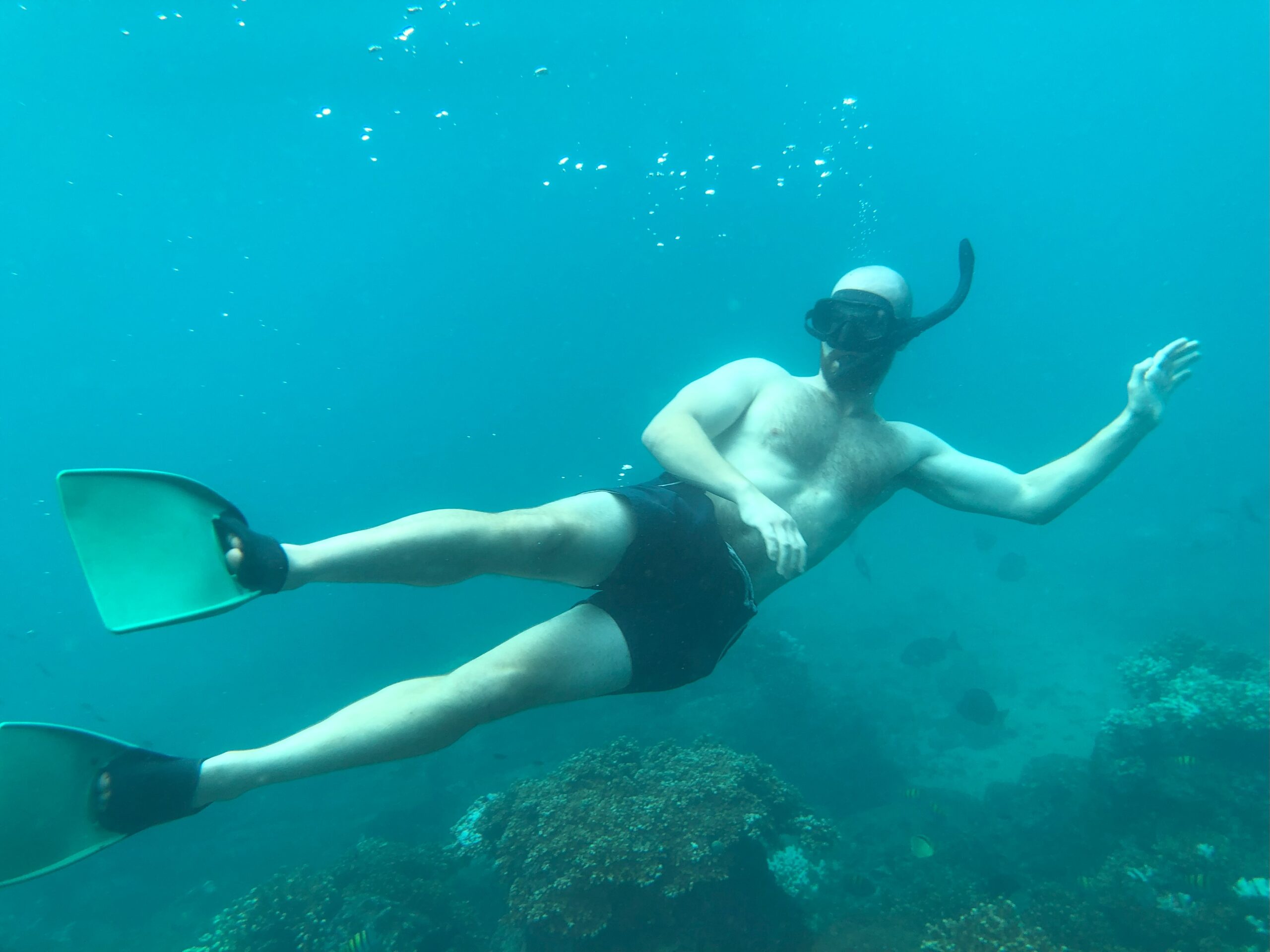
Conclusion
Being fit for travel isn’t about being stereotypically fit, though being super fit wouldn’t hurt. It’s more about managing physical attrition. You’ll need to be on your feet a lot, endure uncomfortable bus rides, and eat questionable food regularly. You don’t need to be a triathlete, but you should be fairly active, keep any injuries in check, be conscious of what you eat, and keep a handful of antibiotics in your pocket at all times! Finally, here’s a pro tip: bring a wife along for when you find yourself stuck on a squatter toilet.
Stay bald folks.
Toodles,
Jack


